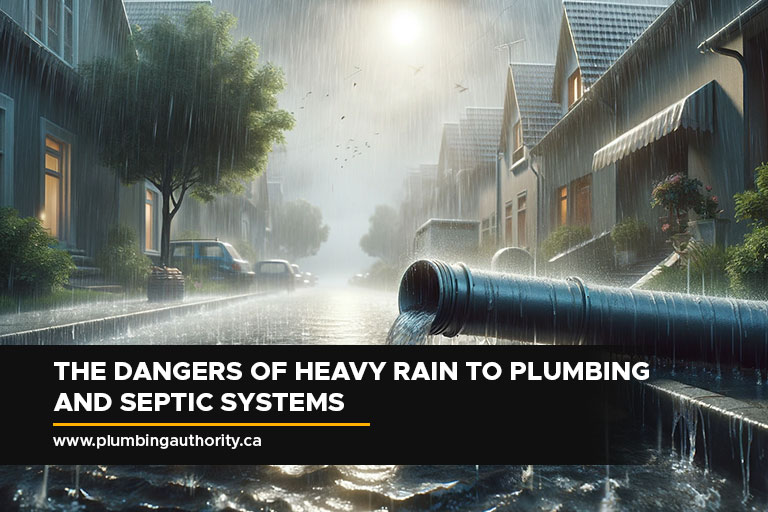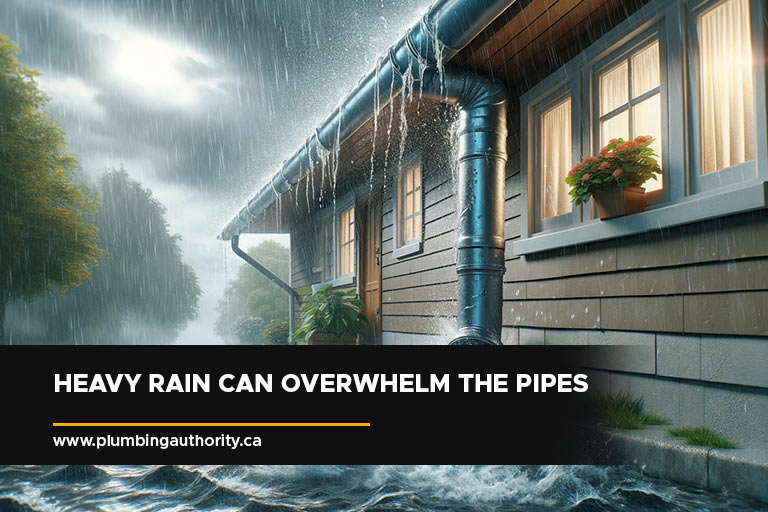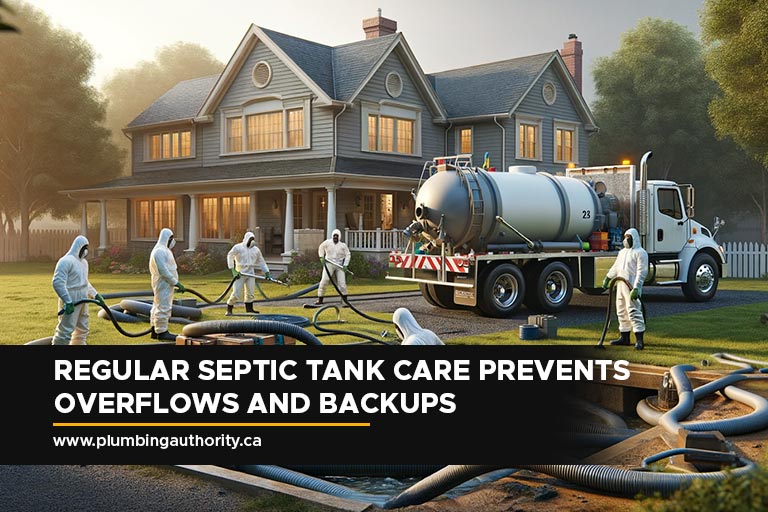
Heavy rain is a natural part of our climate system, essential for replenishing water sources and maintaining ecological balance. However, what is often overlooked is the impact of these torrential downpours on residential and commercial infrastructure, particularly plumbing and septic systems. While these systems are designed to handle standard weather conditions, plumbing problems from heavy rain can occur, resulting in various issues — from minor inconveniences to major disasters.
Homeowners and property managers are often caught off guard by the sudden and sometimes severe consequences of heavy rainfall on their plumbing and septic systems. This lack of preparedness can lead to immediate damage and long-term problems that could have been avoided with proper foresight and planning. Understanding these impacts is crucial for effective property management and maintaining the longevity of these essential systems.
- Overwhelmed Drainage Systems
During heavy rainfall, drainage systems can become overwhelmed. This is particularly true for older or poorly maintained systems. When the system is unable to cope with the volume of water, it can lead to backflow issues. The excess water may flow back into the home instead of away from it, leading to flooding and water damage.
- Septic System Saturation
For properties with septic systems, heavy rain can saturate the drain field, increasing the risks of septic system flooding. The drain field becomes inundated, hindering its ability to effectively process effluent from the septic tank. This saturation can result in sewage backup within the home or even sewage surfacing on the ground, creating unsanitary conditions.
- Erosion and Displacement
Intense rainfall can erode the soil around pipes and septic tanks, potentially causing them to shift or sustain damage. These erosions may lead to leaks or breaks in the system, often remaining undetected until they evolve into significant issues, necessitating costly repairs.
- Infiltration of Contaminants
Excessive rainwater can carry contaminants into plumbing systems, particularly if there are cracks or leaks in the pipes. These contaminants may include pesticides, fertilizers, and other hazardous chemicals, posing health risks and compromising water quality in homes.
- Pipe Bursts Due to Pressure

Heavy rain can overwhelm the pipes
Heavy rainfall can elevate water pressure in pipes, especially if there are obstructions in the plumbing system. This increased pressure can result in pipe bursts, causing rainwater and plumbing damage and requiring immediate repairs to prevent further issues.
- Septic Tank Overflows
During heavy rains, septic tanks can overflow as rainwater infiltrates the tank, elevating the liquid level beyond its capacity. Septic tank overflows in the rain are not minor inconveniences; they pose serious health hazards by contaminating the surrounding area with untreated sewage.
- Mould and Mildew Growth
Following heavy rain, the combination of moisture and warm temperatures creates an ideal environment for mould and mildew growth. These fungal infestations can develop in areas where water has accumulated, such as basements and crawl spaces, potentially causing structural damage and health issues.
- Altered Water Chemistry
Homes relying on well water may experience altered water chemistry due to heavy rain. Runoff can introduce bacteria and pathogens into the water supply, rendering it unsafe for consumption. Water testing and treatment may be necessary to restore water quality and ensure it is fit for drinking and household use.
Prevention and Maintenance Tips
Prevention is often the best course of action for protecting plumbing from heavy rain. By proactively addressing potential issues and regularly maintaining key systems, you can protect your property, save money on repairs, and ensure a safe and comfortable living environment.
Whether you’re a seasoned homeowner or a first-time buyer, here are some tips to keep your plumbing and septic tank system running smoothly for years to come:
- Regular Inspections
Regular plumbing and septic system inspections are crucial to maintaining their functionality. Scheduling these inspections, especially before the rainy season, can help identify potential issues early on. A professional plumber can assess your system’s health, detect leaks, and ensure everything is in working order, preventing costly and inconvenient breakdowns down the line. Don’t wait until a problem arises. Proactive inspections can save you time and money.
- Proper Landscaping
Properly grading the landscape around your property is essential to prevent water-related problems. Ensure that the land slopes away from your foundation and septic system. This facilitates efficient water runoff, preventing water from pooling around your home’s base. Proper landscaping not only safeguards your property’s structural integrity but also helps maintain the integrity of your plumbing and septic systems.
- Gutter Maintenance
Regular gutter maintenance is a simple yet effective way to protect your home from water damage and rain-induced plumbing issues. Leaves, debris, and other materials can clog your gutters and downspouts, causing water to accumulate around your foundation. This can lead to leaks, foundation damage, and even basement flooding. Cleaning your gutters and downspouts regularly can prevent these issues and ensure proper water drainage away from your home.
- Septic Tank Care

Regular septic tank care prevents overflows and backups
Your septic tank plays a crucial role in managing wastewater from your home. Neglecting its maintenance can lead to overflows and backups, which can be both costly and unsanitary. To avoid such problems, it’s essential to implement sewage backup prevention strategies, such as pumping and inspecting your septic tank regularly. A professional can assess its condition, remove accumulated solids, and ensure it functions correctly. Regular septic tank care protects your property and promotes environmental responsibility.
- Emergency Plan
Dealing with plumbing emergencies can be stressful, but a well-thought-out plan can make a significant difference. Knowing the location of your home’s main water shut-off valve is essential, as this can be crucial in stopping water flow during a crisis. Additionally, ensure everyone in your household understands the emergency plan and how to shut off the water supply. Quick action in case of a burst pipe or major leak can minimize damage and save you from costly repairs. Preparedness is key when it comes to plumbing emergencies.
Heavy rain can pose numerous risks to plumbing and septic systems. By understanding these dangers and taking proactive steps, homeowners and property managers can significantly reduce the risk of damage and maintain the integrity of their systems. Regular maintenance, coupled with a keen awareness of the signs of potential problems, can go a long way in protecting your property from the adverse effects of heavy rain.
Need expert plumbing services and drain repair in Bolton? Call Plumbing Authority at (647) 992-7473 for all your plumbing needs. Whether it’s a clogged drain, leaky pipes, or any plumbing issue, we’ve got you covered.




